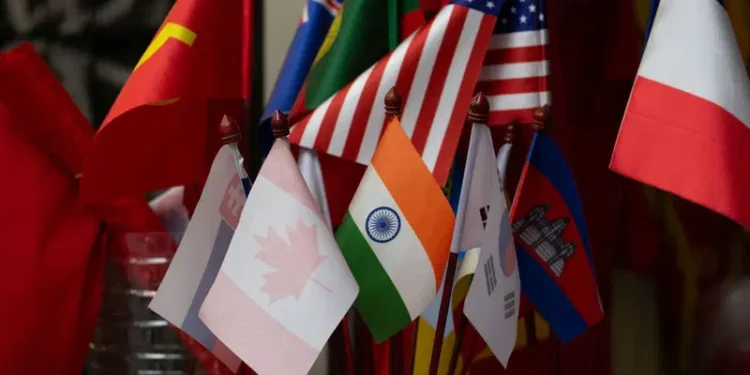Global power in 2025 is defined not only by armies and economies, but by ideas, innovation, and influence.
In today’s interconnected world, power extends beyond military dominance. Nations now exert influence through economic stability, technological innovation, cultural reach, and the strength of their global partnerships.
A new US News ranking, produced in collaboration with the BAV Group (a division of WPP) and Professor David Reibstein of the Wharton School, University of Pennsylvania, identifies the most powerful countries shaping the world in 2025.
🔎 How the Power Rankings Were Measured
The assessment was based on five equally weighted indicators that capture the full spectrum of modern global influence:
1. Leadership influence – The ability to inspire, negotiate, and set global agendas.
2. Economic strength – Measured by GDP size and market resilience.
3. Political influence – The reach and credibility of a nation’s governance and diplomacy.
4. Global alliances – Participation in strategic partnerships and coalitions.
5. Military capability – The traditional marker of national defense and deterrence.
Together, these attributes paint a holistic picture of global power in an era defined by both hard and soft influence.
🌐 The 10 Most Powerful Countries in 2025
1. United States
With a GDP of $30.34 trillion and a population of 347 million, the U.S. remains the undisputed global leader. Its dominance is powered by unmatched military capabilities, leadership in artificial intelligence and space technology, and a vast cultural footprint through media and education.
2. China
China maintains its stronghold as the world’s second-most powerful nation. Backed by a $19.53 trillion GDP and a population exceeding 1.4 billion, Beijing continues to shape global trade, manufacturing, and infrastructure through initiatives like the Belt and Road.
3. Russia
Despite economic sanctions and internal strain, Russia’s $2.2 trillion economy and extensive natural resources sustain its influence. Its global clout remains anchored in military prowess and strategic energy diplomacy.
4. United Kingdom
The UK leverages its $3.73 trillion economy, robust democratic institutions, and global diplomatic reach. Post-Brexit, London has recalibrated its global identity while maintaining a strong voice in international defense and finance.
5. Germany
Europe’s largest economy, with a $4.92 trillion GDP, Germany continues to set the pace in technology, green energy, and industrial engineering. Its influence within the European Union and commitment to sustainable innovation reinforce its global stature.
6. South Korea
Emerging as a technological superpower, South Korea’s $1.95 trillion economy is driven by innovation in semiconductors, robotics, and digital infrastructure. The country’s growing defense investments also enhance its strategic position in Asia.
7. France
France maintains significant influence through its $3.28 trillion economy, cultural diplomacy, and global peacekeeping roles. Paris continues to serve as a voice for multilateralism and international cooperation.
8. Japan
With a $4.39 trillion GDP, Japan remains an economic and technological powerhouse. Its advancements in automation, digital manufacturing, and renewable energy reinforce its leadership across Asia.
9. Saudi Arabia
The Kingdom’s $1.14 trillion economy and command of global oil markets underpin its influence. Vision 2030 reforms have positioned Saudi Arabia as a regional power diversifying toward technology, tourism, and clean energy.
10. Israel
Rounding out the top 10, Israel’s $550.9 billion economy and innovation-driven society sustain its reputation for technological excellence. Its leadership in cybersecurity, defense technology, and artificial intelligence keeps it at the forefront of global innovation.
🌍 A Shifting Global Landscape
The 2025 rankings underscore an evolving definition of power—one increasingly rooted in knowledge, digital transformation, and global collaboration. For African nations, the takeaway is clear: investments in education, innovation, and governance will be essential to building influence in the decades ahead.
Editor’s Insight:
As power becomes more diversified, emerging economies—especially across Africa and Asiahave the opportunity to redefine global leadership through technology, sustainability, and human capital development.


















































































 EduTimes Africa, a product of Education Times Africa, is a magazine publication that aims to lend its support to close the yawning gap in Africa's educational development.
EduTimes Africa, a product of Education Times Africa, is a magazine publication that aims to lend its support to close the yawning gap in Africa's educational development.